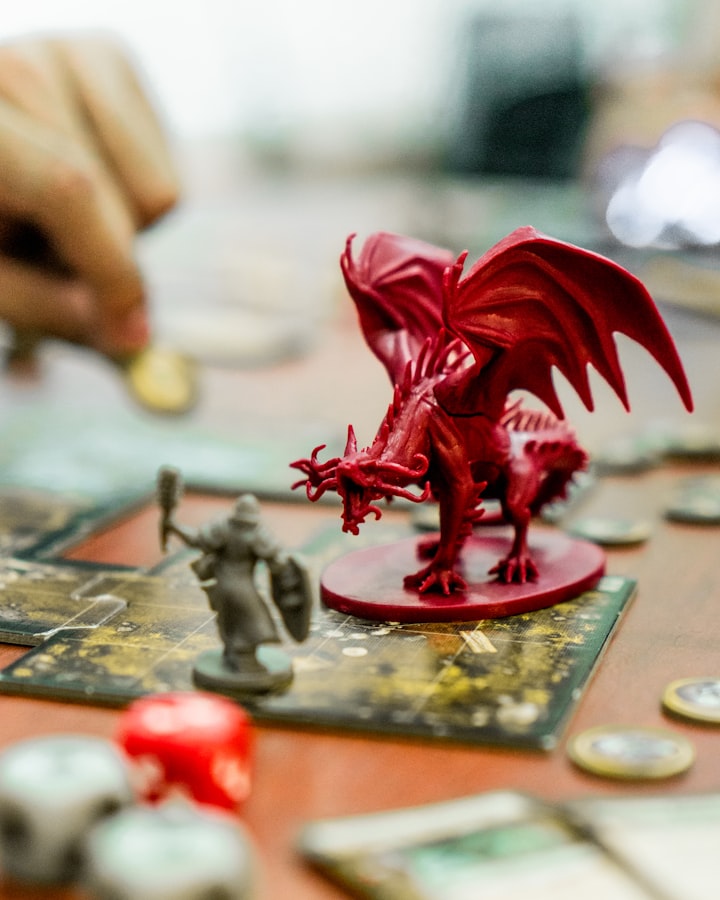How do Bonus Actions Work in Dungeons and Dragons (D&D) Fifth Edition (5E)
How to make the most of your Bonus Actions and when to use them!

Above all else, D&D has always been a combat game. The Combat System in Dungeons and Dragons has always taken up 3/4 of the rules, with actions, and attacks, reactions, counterspells, grappling and movement constantly confusing and confounding new players. Today we are going to focus on Bonus Actions. Actions, Bonus Actions and Reactions are all part of what we call ‘The Action Economy’ in Dungeons and Dragons. In D&D, not everyone always has Bonus Actions to use, but if you do have them, and you’re not using them, then you won’t be using your character as efficiently as you can be.
Sometimes Bonus Actions, and what they are, however, is very confusing! So if you are confused, follow along with this article and we will get you sorted out. Here’s everything players and DMs alike need to know in order to make the best use of their abilities!
What is a Bonus Action and Do I Have Them?
During your turn, you are allowed to use your movement, one action and one bonus action. During other turns you are allowed to use one Reaction per round. These together, determine everything your character can do in a single round of combat. Characters have different options available to them in terms of what kinds of Bonus Actions they might have. While an action is usually casting a spell, or making an attack, Bonus Actions are usually faster, and are assumed to take less time to do in the course of a single turn (remember that a round in D&D takes 6 seconds total).
Some examples. A character that attacks with two weapons, can use their attack action for their dominant hand, and then take a second attack with their off-hand weapon as a bonus action. Many class abilities are also Bonus Actions. A Barbarian, for example, can Rage as a bonus Action. Moon Druids can use their Bonus Action to Wildshape. Rogues can use their Bonus Action as part of their Cunning Action Class ability to Dash, Disengage or Hide as a Bonus Action, when usually those options would take a character’s action to do.
Many spellcasters have access to spells that can be cast as a Bonus Action, or spells that are cast as a Action, but then used as a Bonus Action on subsequent turns. Misty Step is an example of a spell that is used as a Bonus Action. Remember that you can cast two spells in one turn as long as one of them is a Bonus Action, and one is a Cantrip. This means you can cast Misty Step and Firebolt in the same round. The Sorcerer class has a Metamagic ability that can Quicken Spells, turning any spell that usually takes one Action to cast, and using it as a Bonus Action instead! Paladins have many Bonus Actions spells such as Banishing and Blinding Smite that are intended to be cast immediately before making an attack!
If you have a Feat like Crossbow Master you can shoot a Crossbow as a bonus action after attacking an enemy with a one handed weapon. Tavern Brawler allows you to use your bonus action to attempt to Grapple a creature after hitting with an Unarmed Strike. Take a look at your abilities and see if any of them allow you to make use of your Bonus Action. I, personally, suggest separating your class abilities on your character sheet or on scrap paper or online software into Actions, Bonus Actions and Reactions, so that you know which abilities you can use and when!
If you're looking for more guides to D&D, check out the links below!
About the Creator
Theo James Taylor
Writer, MCU lover, and HUGE RPG nerd (but especially D&D). I have been a ghostwriter for blogs and other publications for 5 years now, but love the freedom Vocal gives me. You can find me DMing an outrageous Homebrew Campaign every Monday!






Comments
There are no comments for this story
Be the first to respond and start the conversation.